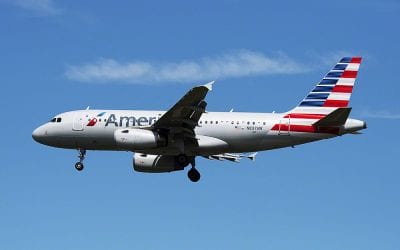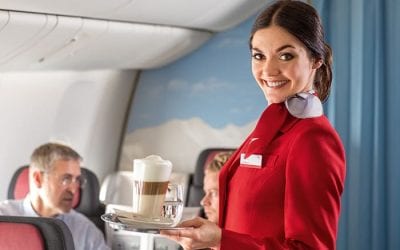Airlines are not out to make friends; they are out to make money. We get it. That generally means that infrequent fliers get ignored while the carriers cater more to their frequent fliers. Increasingly, United penalizes elite fliers as well.
For many travelers who never get decent seat assignments, let alone get upgraded to premium class, this might be one of those “get out the violins” posts. But United Airlines, while they do offer some real perks to their elites, has an upgrade program that often means paying more significant money, for nothing.
The upgrades in question are known as “Global Premier Upgrades.” Anyone who flies more than 100,000 miles and spends more than $12,000 with United gets six of them a year, which can be used on international flights — a very nice perk indeed. American and Delta offer similar programs. But, with American and Delta, the upgrades are valid on almost any fare type, even sale fares. On United, they are only valid on “W” fares and higher.
(For the uninitiated, the letters on coach classes just refer to the level of discount offered for the same seats. W is discounted, but not as low as published sale fares which can be K,L,S,T,U,G etc.)
It makes sense that United might not want to offer upgrades on their lowest sale fares, which even with fuel surcharges and taxes can be under $1,000 to Europe. And, many travelers I know, given the choice, would prefer to pay more even for a “complimentary” upgrade. That’s not the problem.
The problem in most markets is that upgrades aren’t available even several months in advance, and must be wait-listed. Sometimes they don’t clear at all, particularly in cities like San Francisco, Houston and Washington-Dulles, where United has hubs and many high-revenue clients. This means that a traveler can pay significantly more for the chance to upgrade, with no refund or credit at all if the upgrade doesn’t clear.
We’re also not talking trivial amounts of money here. In the San Francisco to London market, for example, the least expensive coach fare in May is about $1,100 roundtrip, where the lowest upgradeable fare is more like $2,100. In the San Francisco-to-Sydney market this June, a sale fare is just under $1,000 including all taxes; the lowest upgradable fare is over $1,800.
Now, when travelers cash in miles for upgrades, along with the dreaded “co-pays,” — surcharges that airlines add on for the privilege of using your miles to sit in a premium cabin — the co-pays are at least refundable if the waitlist doesn’t clear.
In theory, United elite travelers could try to reissue tickets at the last minute if business class is sold out, but downgrading tickets means a significant — $300 minimum — change fee. Besides, sale fares are less likely to be available at the last minute. In many cases, there’s no way of knowing for sure that an upgrade won’t clear at the airport.
Looking for flights with plenty of open seats doesn’t help either. I’ve waitlisted people months out on international flights with zero out of 40 seats sold in business class, and the waitlist never clears. Another option, waiting until closer to departure to get a sense of space availability for upgrades, is impractical. Not just because the fares are likely to be higher, and good coach seat assignments may be gone, but sometimes the number of available paid seats has no correlation for upgrade seats, and it’s hard to know who might be higher on the waitlist.
The one advantage of United’s requiring higher fares for their “Global Upgrades” is that upgrade status is decided partly by status and partly by fare. So, someone with the same status as another traveler who pays more for a ticket will be higher on the waitlist. This particular benefit, however, doesn’t help elites who pay their own money for leisure travel. Plus, someone who spends, say, $2,000 or more for a higher priced discount ticket for their own vacation, can be jumped on the waitlist by a business traveler who books last minute at an even higher fare.
So what could United do? Currently, United penalizes elite fliers.
Simple. Change the rules to allow their best travelers to try to upgrade from any fare. They could still keep the higher waitlist status for those who pay more, so travelers could elect to pay more to increase their chances. But now, the airline’s best customers — even those who book months in advance — are likely to end up spending over $1,000 more, and may end up sitting in coach next to a traveler who bought a super-discounted sale fare the same day.
Janice Hough is a California-based travel agent a travel blogger and a part-time comedy writer. A frequent flier herself, she’s been doing battle with airlines, hotels, and other travel companies for over three decades. Besides writing for Travelers United, Janice has a humor blog at Leftcoastsportsbabe.com (Warning, the political and sports humor therein does not represent the views of anyone but herself.)



